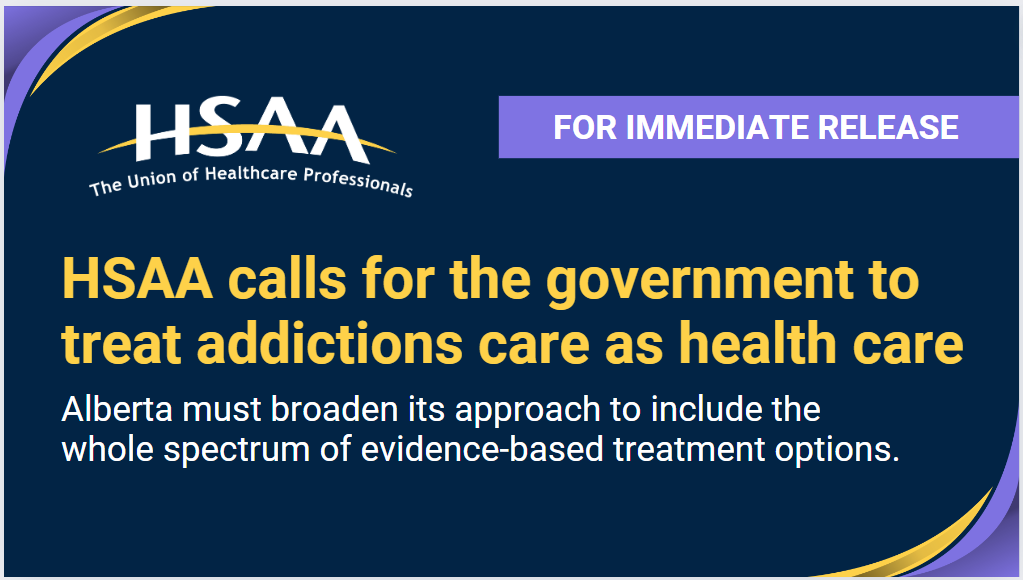EDMONTON – For Overdose Awareness Day on August 31, HSAA is calling on the Government of Alberta to broaden its scope for addiction care to include the whole spectrum of evidence-based treatment options, end the patchwork of harm reduction health services across the province, and treat addictions care as health care.
HSAA members are the health-care professionals providing addictions care through our public health-care system. Every day, they see the deaths and devastating impacts caused by the government’s failed one-size-fits-all strategy for addiction care. Their narrow focus on an abstinence-only approach has led to record breaking deaths year after year.
“Only offering one kind of treatment does not work. It does not work anywhere else in health care and it definitely does not work for addiction care. Recovery and addiction care do not look the same for everyone,” said Mike Parker, President of the Health Sciences Association of Alberta. “People’s lives are at stake. If it saves lives and helps people get better, let’s do it.”
While the government’s Alberta Recovery Model provides one valuable path to recovery, it does not meet the need for addiction care or provide a viable path to recovery for everyone. The Alberta Recovery Model neglects the vital health care that can help keep people alive while they begin a path to recovery through treatments that do not require an abstinence approach.
“It’s unacceptable that thousands of Albertans are dying every year in Alberta from overdoses,” continued Parker. “The waits to access addiction care are far too long and services are not accessible or sufficient enough for the opioid crisis and toxic drug supply.”
“We can resolve this crisis by ensuring our public health-care system provides a full spectrum of harm reduction health services and evidence-based therapeutic approaches across the province by trained health-care professionals.”
Currently, harm reduction health services, along with the pathways to treatment and recovery they offer, are delivered in only a few communities. Despite record breaking overdose deaths, there has been no effort by this government to increase access to these life-saving services. Addiction treatment programs are not readily available across the province and do not offer the level of care needed to support everyone through recovery. The government’s privately delivered recovery communities are barely operational and, even when fully completed, they will not provide sufficient addiction care for the crisis Alberta faces.
“People are needlessly dying from drug-poisoning every day while we have the health-care solutions and health-care professionals ready to respond,” concluded Parker. “There is an overdose crisis across Alberta. We must use every form of evidence-based addiction care available to respond with the urgency that a loved one’s life is at risk deserves.”
HSAA is asking Albertans to contact the Premier and Minister of Mental Health and Addictions, as well as their local MLAs, to urge them to utilize our public health-care system to provide a full spectrum of harm reduction health services and evidence-based therapeutic approaches across the province by trained health-care professionals. If the Government of Alberta made it a priority to provide a wider range of services accessible to all Albertans, we would save lives.
Addiction Care is Health Care: https://hsaa.ca/act4addictions/
-30-
Media Inquiries:
Myles Curry, Director, Communications and Engagement
587-991-9445 | MylesC@hsaa.ca
